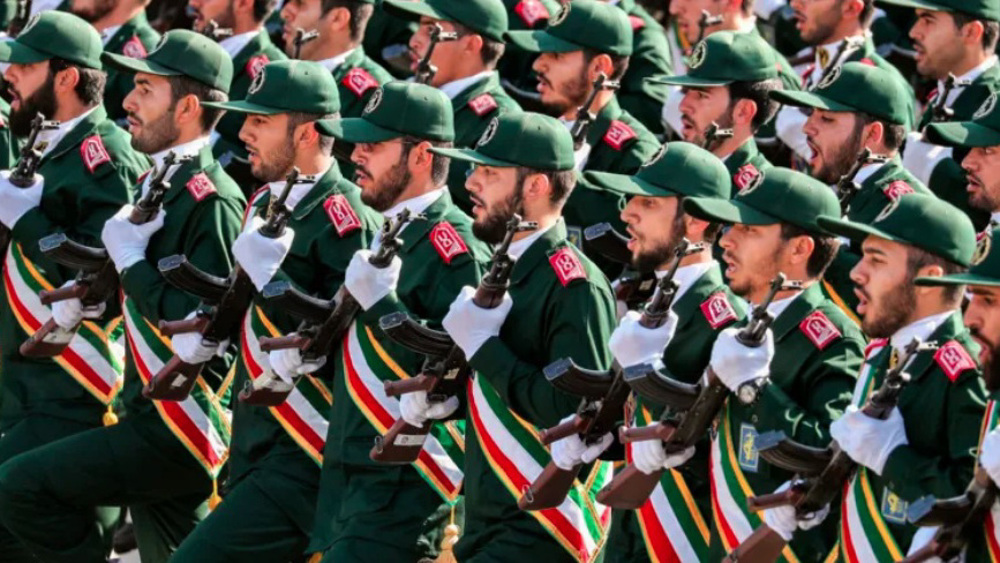US pressure impeding Syria peace talks: Analyst
Press TV has interviewed Joaquin Flores, with the Center for Syncretic Studies, in Belgrade, to ask for his take as to the recent remarks by the UN special envoy to Syria regarding the ongoing peace talks in the Arab country.
What follows is a rough transcript of the interview.
Press TV: The fact of the matter is that despite the difficulties on the ground, I do not want to get into details; everyone knows that the difficulties around the negotiating table which Mr. De Mistura did touch upon that. He seemed rather upbeat, didn’t he?, in terms of welcoming and embracing the progress that he so discussed that now there is a common approach toward ensuring that a political transition is really implemented. Do you get that sense as well?
Flores: The sense I get is that you know words like transition are used by the contending sides in very different ways; they have very different meanings. Of course political settlement is possible, but there are some red lines here and I think that Syria and its allies have been more than clear that the government of Syria has been elected by its people, that it is a sovereign state and so you know what is there to be happy about I think of course that the belt of calm, the respect for the ceasefire that was pervasive through February, in March, last month and the month before. If we can see a return to that, I think we will hinge primarily upon how certain terrorist groups on the ground are being in the bind.
Press TV: But Joaquin in your opinion and despite what Staffan de Mistura may have said or not, what does it take to get there really? What does it take to get back to that certain level of cessation of hostilities? According to some sources, some parties to the negotiations such as the Russians, there seem to be a major obstacle and the fact is that there are some people within the let’s say negotiating team that is on the High Negotiations Committee (HNC) part, I am referring to, which seems to be on the side of let’s say terrorists. As long as they exit and they are party to the talks or negotiations, it seems like there will not be any success on the talks. Do you share that sentiment?
Flores: I do share that sentiment and here is really what is going on is that you have groups that are considered terrorists like al-Nusra Front and then you have groups that are armed like Jaish al-Islam. But we know that they are allied; they are part of the same coalition or part of the same fronts; they work together. Maybe they change flags and do different photos ups. We really do not know on the ground who is pretending to be who. So you can have a group that is considered a legitimate armed opposition so to speak and you could have a group that is considered terrorist and they can pretend to be each other. They have the same leadership; they are all financed by the Saudis, the Turks with reinforcement by Qatar and Israel.
So what is really going on here, I think that you really cannot play games when you have a conflict like this. So when the Russians come forward and say hey we need to add a few more of these groups that are really collaborating on the terrorist side here, that these need to be considered terrorist groups too; if this means that there are going to be some vacancies on the high negotiating committee on the side of the Western-backed non-Syrian opposition, well then so be it.
Press TV: What you just said of course a lot of people would do subscribe with that as being the fact on the ground. Which part of it is that the UN team there, Mr. De Mistura and his colleagues, failed to appreciate and comprehend?
Flores: I think that there is tremendous political pressure coming from the United States. I think when you are paid to not understand something; well you are not going to understand it quite frankly. Look if there is going to be a political solution, countries like Syria, countries like Iran, countries like Russia; they need to be able to persuasively demonstrate, showing from intel they have gathered on the ground that groups that are pretending to be opposition, that are pretending to be revolutionary groups, are in fact part of a foreign invasion. I think that when this kind of intel whether it is satellite, photography, whether they are confessions from former leaders, defectors and so forth; I think when this kind of stuff come to light at a large UN assembly meeting perhaps put a general assembly, it would be a historic moment. I think that would take care of it.
VIDEO | Trump’s 2026 State of the Union speech bellicose, short on policy
Iran’s president sees 'good outlook' for nuclear talks with US
Peter Mandelson suspected of misconduct in public office as UK envoy to US
Iran's foreign minister leaves for Geneva for third round of US talks
Iran dismantles foreign-backed terror network in Southeast
VIDEO | Press TV's news headlines
US imposes more sanctions on Iran ahead of new round of talks
UK engaged in 'systematic' suppression of pro-Palestine voices: Report












 This makes it easy to access the Press TV website
This makes it easy to access the Press TV website